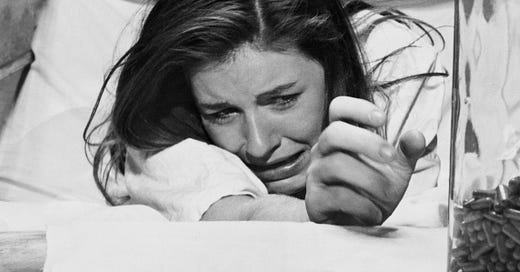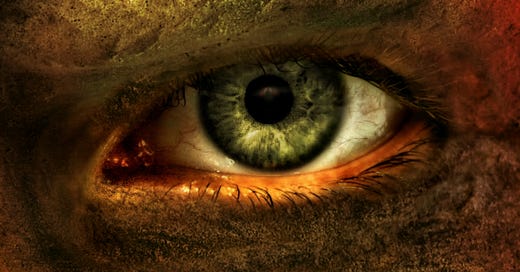
I wrote the following for The Daily Telegraph, to be published in the U.K. upon the release of Not Forever, But for Now.
Nothing good emerges from nothing. Years back, Max Brooks and I were alone in an otherwise empty lecture hall. His book World War Z had become the all-time bestselling zombie novel, but I suspected it wasn’t about the walking dead. Okay, it was and it wasn’t.
About his father, Mel Brooks, Max told me, “We never ate in restaurants because all through dinner men would line up at our table to tell my dad their best jokes. Every Jewish dentist dreamed of making their hero, Mel Brooks, laugh.” And laugh he did, whether or not the joke was funny, while his wife, Anne Bancroft, graciously played along with the performance. Relaxing it was not.
Here I saw my opening and asked, “Your mother?” I asked, “Is World War Z really about your mother?” This wasn’t a random guess. The last year of his mother’s life coincided with the year in which it seemed he’d been writing the book.
Max’s eyes got, well, misty, and he said, “No one’s ever caught that.” He went on to say that in the last year of her life, he’d driven his mother to oncologist after oncologist. Each had confidently assured them about a new cancer treatment and set their minds at ease. That’s why each government in the novel confidently announces a new plan for resolving the zombies.
Each promising cancer therapy had failed, and that’s why after a year the zombies had won. Max said readers hated the downer ending of the book, but that’s how it needed to end because after a year of battling cancer Anne Bancroft had died.
Max and I alone in that lecture hall, well, it was a moment. A nice moment.
Max is funny and hairy and has flat feet—a defect that got him bumped out of military training. All his life older men had told him, “Your mother, in The Graduate, she’s sex personified! The sexiest woman alive!” so he’d never watched the movie. His fear was he’d get an erection, and then what?
The truth was Anne Bancroft had always raised her own vegetables and saved the seeds to replant year after year. She canned food. During the Rodney King riots she’d watched the smoke rising over Los Angeles and calculated how long her family could eat if she butchered the family pit bull and harvested the koi in their backyard pond. Max told me, “She was basically an Italian peasant,” but not with rancor. With pride.
In the year after her death he’d compiled everything she’d taught him. About gardening, about canning. As a tribute to her he’d put all of this legacy into his book, The Zombie Survival Guide.
I wasn’t surprised. This is what it takes to write a good book. My best writing teacher, Tom Spanbauer, taught me as much. Tom called it “Dangerous Writing,” and by that he meant that a writer had to explore an unresolved personal issue that couldn’t be resolved. A death, for instance. Something that seemed personally dangerous to delve into. By doing so the writer could exaggerate and vent and eventually exhaust the pain or fear around the issue, and that gradual relief would keep the writer coming back to work on the project despite no promise of a book contract or money or a readership.
Moreover, the writer had to explore the issue through a metaphor. Like zombies. Or Fight Clubs.
Everyone has a mother. Everyone’s mother will die. Few people want to read about your mother’s death, even if she’s a movie star. A metaphor allows other people into your story. Better yet, it charms you into going deeper into the pain than you’d otherwise go. You forget what you’re actually writing about, but you don’t.
Plus with a metaphor you’re not approaching the pain head-on. According to Michel Foucault, going in direct opposition to an issue only gives it more power. It makes the pain worse. But to come in at an angle, with humor or a metaphor, that works. Case in point, during the “Don’t ask, don’t tell” protests over gays in the United States military Andrew Sullivan wrote of one group of demonstrators who wore elaborate hats and carried picket signs that read, “Gays in the Millinery.” Sullivan wrote, “Foucault would’ve loved that.”
As for me, people are always inviting me for coffee or lunch. Their treat. I can always see what’s coming. “I have this great idea for a book,” they say. “I’ve got it all worked out in my head,” they say. “You should write it, and we’ll split the profits.”
Like Mel Brooks, I sit there and smile.
These people have no idea how unpleasant the act of writing can be. To go back to Tom Spanbauer, Tom calls writing a first draft “Shitting out the lump of coal.” Meaning it’s slow and painful. Even using the best metaphor in the world, Dangerous Writing requires long chunks of isolation. The isolation is the least of it. But at least when the draft is done you feel relief. It’s your shit. Since we’re on the subject, everyone’s shit smells good to them because it’s the smell of relief. Proof the pain is gone.
On the other hand, someone else’s shit just smells bad. Sitting at these lunches, I’m always thinking, Why would I want to take your bowel movement? That’s why so-called Great Ideas seldom get written. There’s nothing personal, nothing dangerous at stake. And if they do get written, the result is lackluster. Formulaic. Just like the sort of outline and pitch that can get bandied about over coffee and sandwiches.
For years I corresponded with the writer Ira Levin. I continue to champion his work, the man was the 20th century’s master at nailing the unspoken with a metaphor. His novel The Stepford Wives first recognized the backlash against Feminism. I’d always asked him if his novel Rosemary’s Baby triggered so much horror because it was a metaphor for the tragedy of Thalidomide. Early on in the book a well-meaning character knits booties and mittens for the unborn baby, but knits them for hands and feet like claws and pincers, one of the physical defects of the drug. Rosemary Woodhouse, the title character, is bullied into consuming mysterious cakes and drinks. The result is a child so shocking that it can’t be shown in the eventual film.
Likewise, I’ve always held that Shirley Jackson’s story The Lottery stood for the draft lottery. At the time it was written, American’s prosperity and growth rested on the custom that young men would be chosen at random to die brutal deaths in WWII. As the woman in the story is stoned to death, these young men would be blasted to bits. The public outrage that greeted the story upon publication in The New Yorker suggests the collective guilt and denial Jackson had triggered.
Levin would never confirm or deny my theory. Jackson I never knew. But after the novel Interview with the Vampire had become a huge success, its author, Anne Rice, described writing it while her daughter was being treated for juvenile leukemia. At the time, their lives were all about blood, blood draws, blood tests, blood counts. A vampire was the metaphor that emerged, and as Rice’s daughter died at the age of five, the small girl in the novel also had to die.
You see nothing good comes from nothing.
Tom Spanbauer was right. It’s the unresolvable pain that brings you back to the task of writing. And it’s not important that anyone ever recognize your secret pain. Ira Levin probably knew that he’d be crucified if caught casting devil worshipers in a novel about Thalidomide. And Shirley Jackson certainly did not want to attack the issue of compulsory military service head on. They were writers, and as Foucault suggested, their work should be indirect, masked, yet still have its effect.
If you’ll suffer another example, let’s look at Valley of the Dolls by Jacqueline Susann. In perhaps the pulpiest of all 20th century novels, Susann gives us a nightclub crooner, Tony Polar, who gradually falls from movie stardom due to a debilitating brain condition that leaves him vegetative in a mental hospital. At the same time another star, Neely O’Hara, lands herself in the same hospital with an addiction to drinking and barbiturates. In a moment fraught with melodrama O’Hara begins to sing in a weak voice to a roomful of damaged patients. Unseen, the catatonic Tony Polar begins to stir in his wheelchair. He stands. He staggers across the room to embrace Neely O’Hara. They sing their duet for only a moment before he collapses and is taken away. O’Hara weeps. Movie audiences roared with laughter.
Somehow the author didn’t find the moment quite so funny. When the film premiered at the Venice Film Festival, it was shown aboard a luxury ocean liner. As the curtain fell, Jackie Susann stormed off the ship in tears of rage. What no one knew was that she had a son, a severely developmentally disabled son. He’d been consigned to a hospital where she’d go to visit. What came across as maudlin in the film, comic even, was the weekly reunion of Susann and her son. So even schmaltz comes from something real and painful and unresolved. Even schmaltz comes from Dangerous Writing.
If you haven’t noticed by now, I’ve not revealed any of the real dangerous personal issues in my own writing. I’m not going to. Ira Levin never did, nor did Jackson, nor did Susann, and that puts me in very good company.
What I will tell you is that when Max Brooks went off to college, during his first film course his freshman year, his professor dimmed the lights and announced that they’d be watching The Graduate.
And to his great and glorious relief, he told me, he did not get an erection.



















Thanks for this, I talked with someone at great length at the book signing yesterday, just about this.
Also, damn. You just spent a whole day socializing, then share this the next day. You have so much strength.
Beautiful post, Chuck. I especially like, "I’ve not revealed any of the real dangerous personal issues in my own writing. I’m not going to." After reading this, I looked (and confirmed) that the bit about Ms. Bancroft did what all revelations do: it showed up on a Wikipedia page. It's now a bit of trivia. I like that I can live with a book like Fight Club for over twenty years and have my theories, responses, emotions, and frustrations with the book—and never really have the "Oh, I happen to know that the secret code—Chuck's secret code—is xxxxxxx." In all the Dangerous Writing books you listed, the power is in the book. It's there, whether or not we can spot it. It's subtle. And the hidden source (that the book jacket doesn't say, "An allegory about dangerous chemicals") keeps novels from becoming bits of ideology or relying on their "message" so much that the actual story is irrelevant. Good stuff.